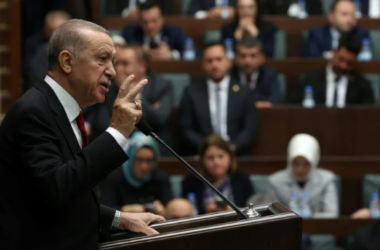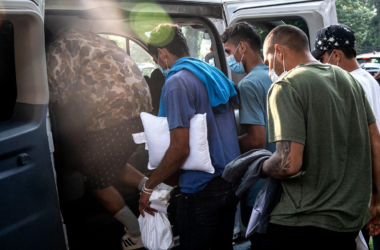The recent death of a prominent Nigerian transgender TikToker, known as “Abuja Area Mama,” has ignited a complex debate about societal norms and the safety of LGBTQ+ individuals in Nigeria. The 33-year-old’s body was discovered along a highway in Abuja, bearing signs of severe violence, and her passing has become a focal point in discussions about the treatment of transgender individuals and the broader LGBTQ+ community in Nigeria.
Abuja Area Mama, who had a significant following on social media, used her platform to discuss her experiences as a transgender woman and a sex worker. Her social media presence often highlighted the challenges she faced living as a transgender person in a deeply conservative society. Nigeria’s stringent laws against same-sex relationships and widespread societal prejudice against the LGBTQ+ community have created an environment where individuals like Abuja Area Mama are vulnerable to violence and discrimination.
The tragic circumstances of her death have drawn attention to the broader issues of safety and acceptance for those who defy conventional norms. According to local media, her body was discovered on the Katampe – Mabushi expressway in Abuja, leading to a police investigation that aims to determine the exact circumstances surrounding her death. Preliminary reports revealed that the deceased was dressed in female clothing but lacked identification, complicating the initial response to the case.
The reaction on social media has been polarized. While many have expressed condolences and outrage over the apparent violence, others have pointed to the underlying cultural tensions that contribute to such tragedies. Nigeria’s laws, which criminalize same-sex relationships and provide limited protections for LGBTQ+ individuals, reflect a broader societal conservatism that often fails to accommodate diverse identities and lifestyles.
Supporters of conservative values argue that Nigeria’s traditional beliefs and legal framework are essential in maintaining societal order and cultural integrity. They contend that changes to these norms could lead to increased instability and moral decay. While acknowledging the tragedy of Abuja Area Mama’s death, some conservatives stress the importance of upholding cultural and religious values that have long been a cornerstone of Nigerian society.
However, there is a growing call among human rights advocates for greater protection and understanding for marginalized communities. Critics argue that the current legal and social climate contributes to a hostile environment that endangers those who live outside conventional norms. The violence experienced by Abuja Area Mama and others in similar situations underscores the urgent need for reform in both legal protections and societal attitudes.
The Nigerian police have pledged a thorough investigation into the incident, and Abuja police chief Benneth Igweh has called for a “discreet” examination of the circumstances surrounding the death. The hope is that a comprehensive investigation will provide clarity and justice, and perhaps stimulate a broader conversation about the need for improved safety and rights for all Nigerians, regardless of their identity.
In the meantime, Abuja Area Mama’s death serves as a poignant reminder of the ongoing struggle faced by those who challenge traditional norms and the necessity of addressing both societal prejudices and legal shortcomings to ensure a safer and more inclusive society.








